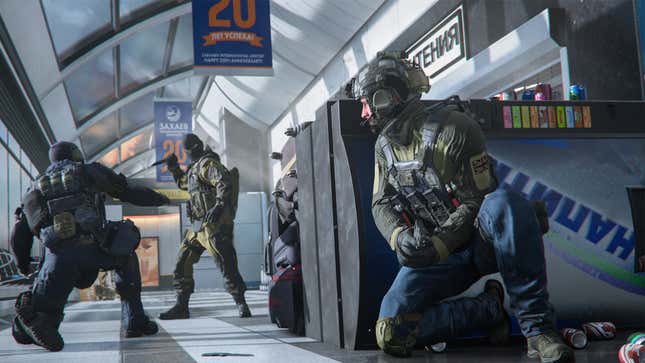
The November 10 launch of Call of Duty: Modern Warfare III reignited the seemingly endless debate about multiplayer matchmaking, with players demanding Activision and Infinity Ward provide details, or even abolish it entirely. This conversation has perpetuated across multiple Call of Duty releases, but the team behind the popular first-person shooter has yet to properly acknowledge it—until now. On November 30, an official statement was shared by popular CoD website CharlieIntel on X (formerly Twitter).
“We know there is a lot of interest in the matchmaking experience, especially around how skill contributes to how lobbies and matches are put together,” the statement reads. “Nothing is more important to us than the experience players have with the game, and matchmaking is a big part of that. We’ve been working on our matchmaking system for well over ten years, and we continue to spend a ton of time and energy on improving the matchmaking process.” The statement continues by promising more details to come in “the coming weeks.”
A spokesperson for Activision confirmed to Kotaku via email that the statement “stems from a live conversation from Call of Duty reps at an event, and accurately describes what was said. We will not be issuing anything further at the time.”
Read More: Admit It, You Don’t Understand Skill-Based Matchmaking (And Neither Do I)
Buy Modern Warfare III: Amazon | Best Buy | GameStop
Though the statement also contains some information about how matchmaking works (a combination of “latency, search time, and skill” plus “many other factors” not detailed), there’s not a whole lot here that wasn’t already known. Call of Duty, like other popular shooters Apex Legends and Fortnite, uses a skill-based matchmaking (SBMM) system to determine how to populate online matches. It varies from game-to-game, and devs never share the secret sauce, but SBMM usually involves things like kill/death ratios, score per minute, total wins, and latency into account when finding matches
Some players think the reliance on skill as the standard-bearer for creating good matches is a problem, with many arguing that SBMM makes matches too perfectly matched, resulting in a homogenization of their multiplayer experience. As former head of Halo matchmaking told Kotaku, “skill [shouldn’t] be a primary factor when determining who to match into a casual lobby together. However, once a list of possible matches is found, I don’t see an issue with skill factoring in as secondary criteria: sort criteria, as I implemented it for the early Halo games.”
And the lack of details on what exactly constitutes a “good” Call of Duty matchmaking result has frustrated players over the years. “As you can imagine, it’s challenging to manage all of these factors at once and land at the right answer: an answer that leaves [players] feeling the quality of the match we found for them was worth the time and lack of control they sacrificed for it,” Hoberman said.
The official Call of Duty statement acknowledges that frustration, saying “we haven’t spent the time to pull together all of our work to share with you our insights and improvements over the many years.” Looks like we’ll get some insight after season one launches across Modern Warfare III and Warzone on December 6.
Update 11/20/2023 at 2:50 p.m. ET: Updated with a comment from Activision spokesperson.